| | | | | | | Presented By Lumina Foundation | | | | Axios @Work | | By Erica Pandey ·Nov 03, 2020 | | Welcome back to @Work, and happy Election Day! Here are Axios' tips on how to stay safe and sane in the coming days. 🗳️Two easy ways to follow the hours ahead: Today's edition is 1,371 words, or a 5-minute read. As always, get in touch with me at erica@axios.come or on Twitter @erica_pandey. OK, let's start with... | | | | | | 1 big thing: Navigating the 2020 election at work | 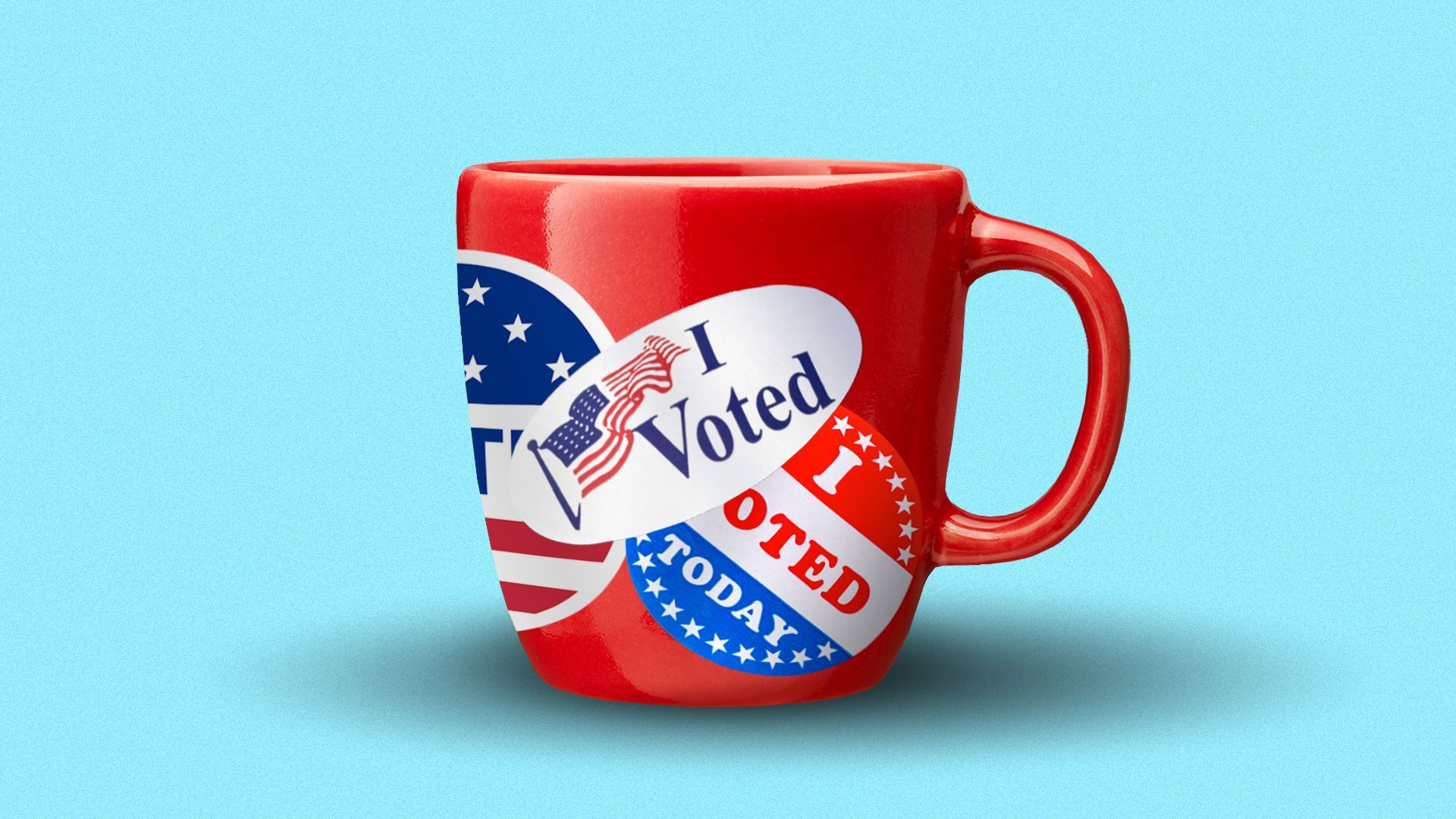 | | | Illustration: Annelise Capossela/Axios | | | | In the next 78 days, between the election and the inauguration, politics will become increasingly difficult to avoid at work. Many companies aren't shying away from that. The big picture: This election cycle marks a turning point for Corporate America. Instead of focusing solely on profits and growth, companies are wading into social and political debates — betting that the future of the workplace is headed that way. "It's the first thing you're taught in business," says Asher Raphael, CEO of Power Home Remodeling, a Pennsylvania-based home improvement company. "No politics and no religion. But that rule is outdated." What's happening: This year, more than 1,700 companies gave employees paid time off to go to polls. For many of those firms, it was a first. - Will Bondurant, CFO at San Francisco-based Castlight Health, which is providing Election Day paid time off, says that his company has attempted to encourage voting by creating a Slack thread for people to post voting selfies, share resources with information on how to vote, and invite staff to share personal stories on the importance of voting.
- "We think this is the right thing to do, but we hope it has a positive business impact in terms of hiring and retaining talent," Jonathan Neman, CEO of Sweetgreen, tells me about his company's decision to give time off on Election Day.
But it's far from over. Now companies will have to navigate weeks — or even months — of a chaotic political climate that will undoubtedly bleed into the workplace. - The signs are already there. 44% of HR professionals observed intensified workplace political volatility — defined as increased tension, hostility or arguments between employees over politics — in 2020, compared with just 26% in 2016, per a recent survey from the Society for Human Resource Management.
- But, but, but: A whopping 80% say their organizations have not set guidelines regarding how to talk about politics at work. "That's a problem," SHRM president Johnny C. Taylor, Jr. says.
- And the pressure is on. Nearly three-quarters of workers expect their CEOs to have a response plan if the election's outcome is unclear or contested, according to a new Edelman study.
That shouldn't scare CEOs who've been paying attention to office culture, says Raphael. - "The workplace is actually the perfect place to have these conversations," he says. "Part of the problem in the larger political environment is that the humanity is lost."
- "But if you haven't developed a culture in which people have a deep sense of belonging and care for one another, it's hard to have a productive discussion about politics."
The bottom line: Says Kesi Lumumba, a public relations professional in D.C., "I think there's a catharsis in talking about everything that's going on, regardless of political affiliation." Go deeper: CNN"s Kathryn Vasel has a useful read on how to talk politics at work without getting into trouble. |     | | | | | | 2. Charted: The latest jobs picture |  Data: Indeed; Chart: Naema Ahmed/Axios As Americans head to the polls today, the vast majority are still living in cities and states where there aren't enough jobs for the unemployed. The big picture: The jobs landscape is improving — but not quickly enough, according to data on job postings from Indeed's Hiring Lab. "The rate of improvement since August is disappointing compared to the more dramatic improvement we saw in May, June and July," says Jed Kolko, chief economist at Indeed. - States with big cities are suffering more than those that are more rural because cities rely on restaurant, retail and hotel jobs. And Hawaii and D.C. are in the worst shape because of the decline of domestic and international tourism.
- Some states' job postings appear to have bounced back and are nearly on par with 2019 levels, but postings don't tell the whole story, says Kolko. Employment is down in every single state, per the latest Bureau of Labor Statistics data.
The bottom line: "Even though each wave of the virus has affected different regions of the country, the economic pain has been fairly consistent," Kolko says. "The places with bigger drops in job postings and steeper job losses over the summer remain the places further behind today." |     | | | | | | 3. Why Reddit's remote work policy is different | 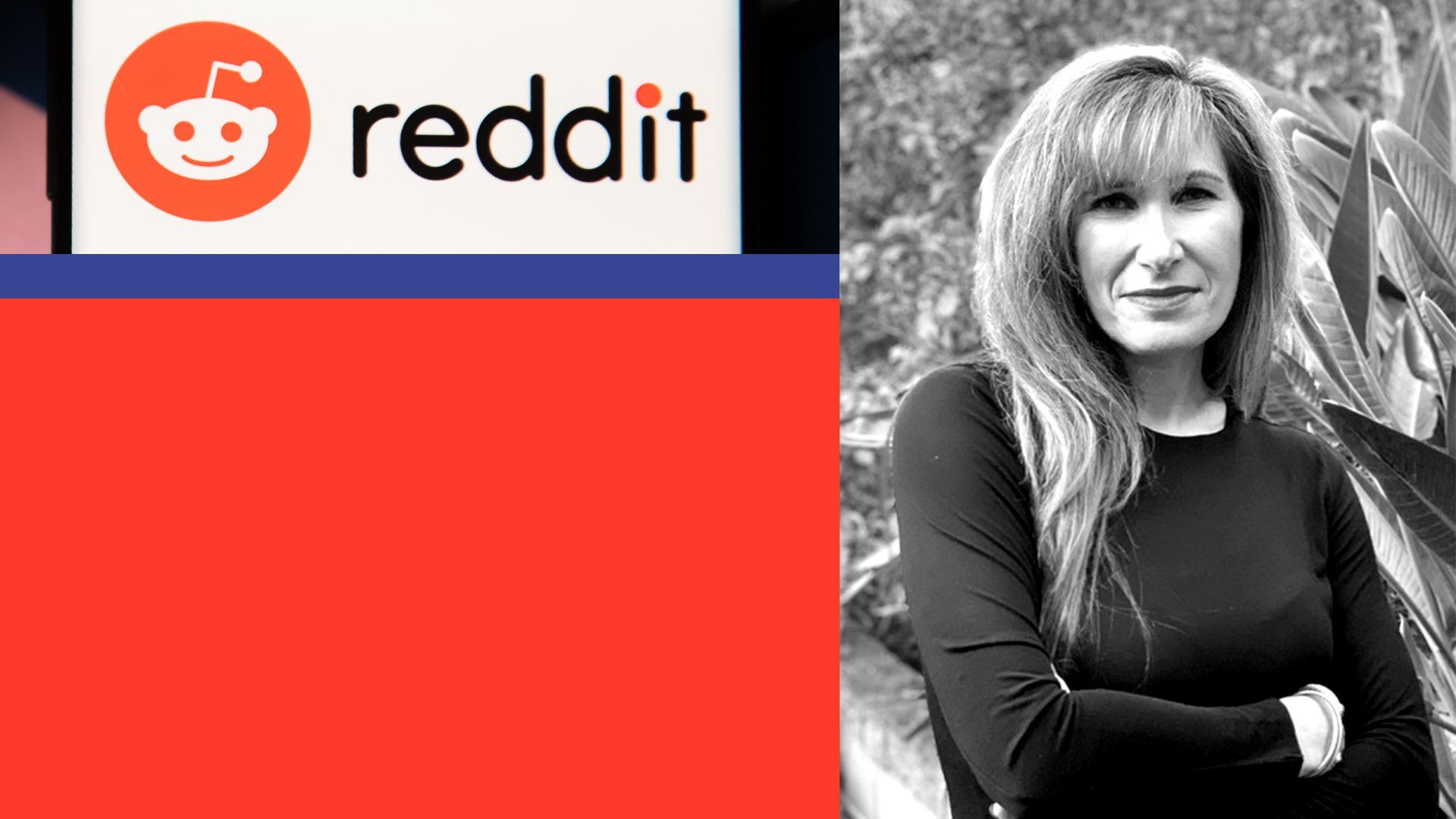 | | | Photo illustration: Axios Visuals. Photo: Reddit | | | | Reddit isn't the first major tech company to embrace telework after the pandemic. But the platform stands out from its peers because it says it'll pay workers the same salary — no matter where they live. Why it matters: The catch in the remote work policies at Facebook, Microsoft and other tech companies has been that although employees can choose to work remotely forever and from anywhere, their pay might be cut if they move out of expensive cities to cheaper ones. Reddit is doing away with that snag. - I spoke with Nellie Peshkov, Reddit's chief people officer, about the move.
- "We realized where our employees are doing work has no impact on their performance," Peshkov says. "We want to pay our employees based on that impact, based on that performance."
- The majority of Reddit's employees don't want to go back to the office full-time, she tells me.
Between the lines: Reddit's policy will apply to new hires as well as veteran employees. So even if you're joining as a new employee from the middle of the country, you'll get paid a Bay Area salary. - "I really believe this is going to allow us to increase the diversity of our workforce," says Peshkov.
Worth noting: Peshkov is Reddit's first-ever chief people officer. She previously led the firm's human resources team at the VP level. - The company created the chief people officer role amid the pandemic because "it is so critical and important to the success of the company," she says. "People are our most important resource."
Go deeper: The evolution of HR |     | | | | | | A message from Lumina Foundation | | Coming soon: The new era of human work | | | 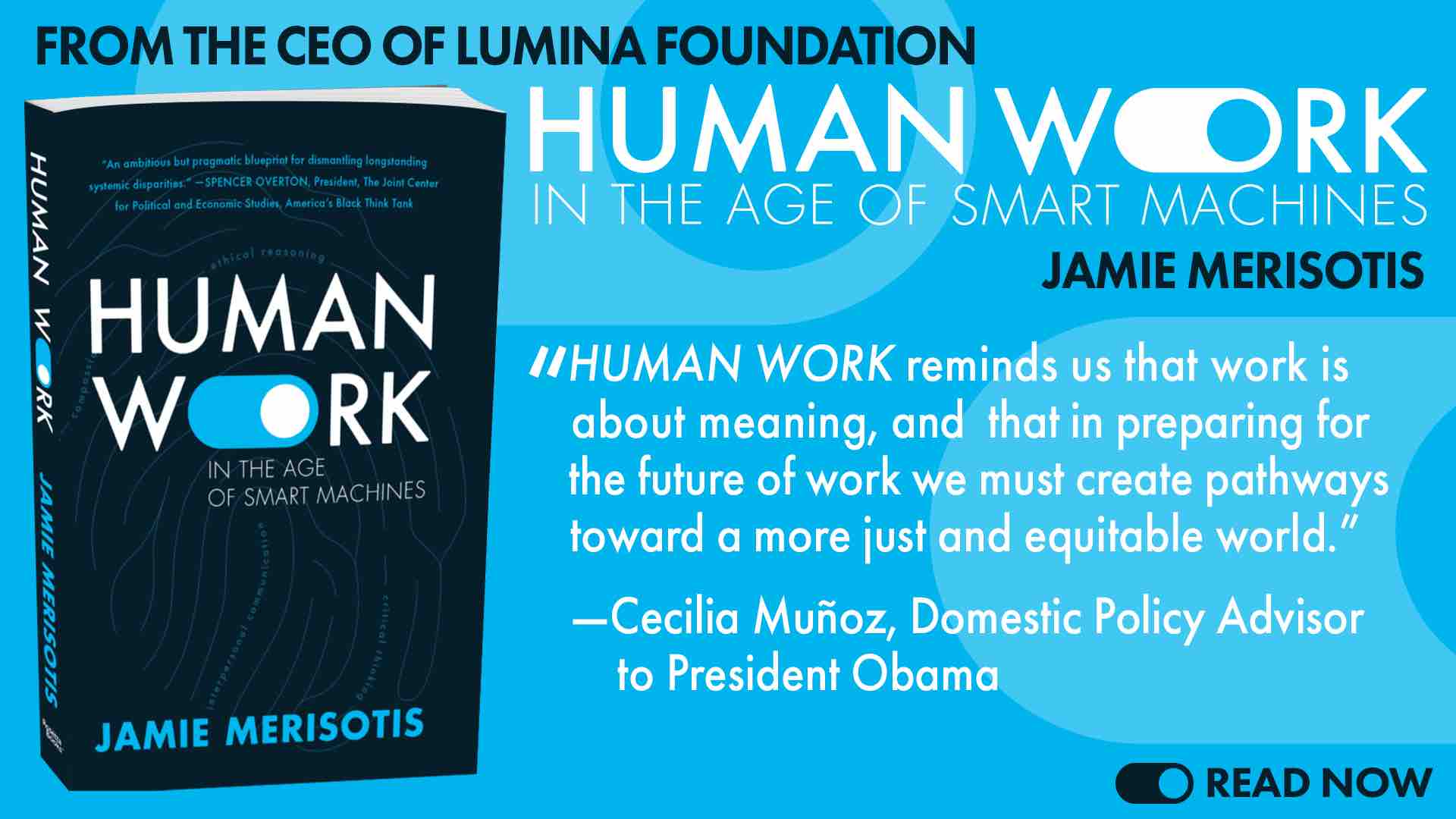 | | | | Is AI a threat to U.S. workers? According to Jamie Merisotis, a globally recognized philanthropist and author, it's a call to action. The reason: In a new book, Human Work in the Age of Machines, Merisotis maps out the large-scale changes we must make now to create more meaningful work. | | | | | | 4. Staggering stat: The great American migration | | Last week, I wrote about how pandemic-induced telework is starting to undo a decades-long trend of American stagnation. - The number of households moving will be between 14 million and 23 million, according to a new Upwork survey of more than 20,000 American adults.
- That's three or four times greater than the standard rate of migration in the U.S., per Upwork's chief economist, Adam Ozimek.
- 20.6% of those planning to move are doing so out of a major city, and 52.5% are moving into cheaper homes.
Why it matters: This vast redistribution of people and talent across the U.S. could make bigger cities more affordable and allow second-tier cities to thrive. If you missed last week's deeper dive into the migration trend, read it here. |     | | | | | | 5. Worthy of your time | 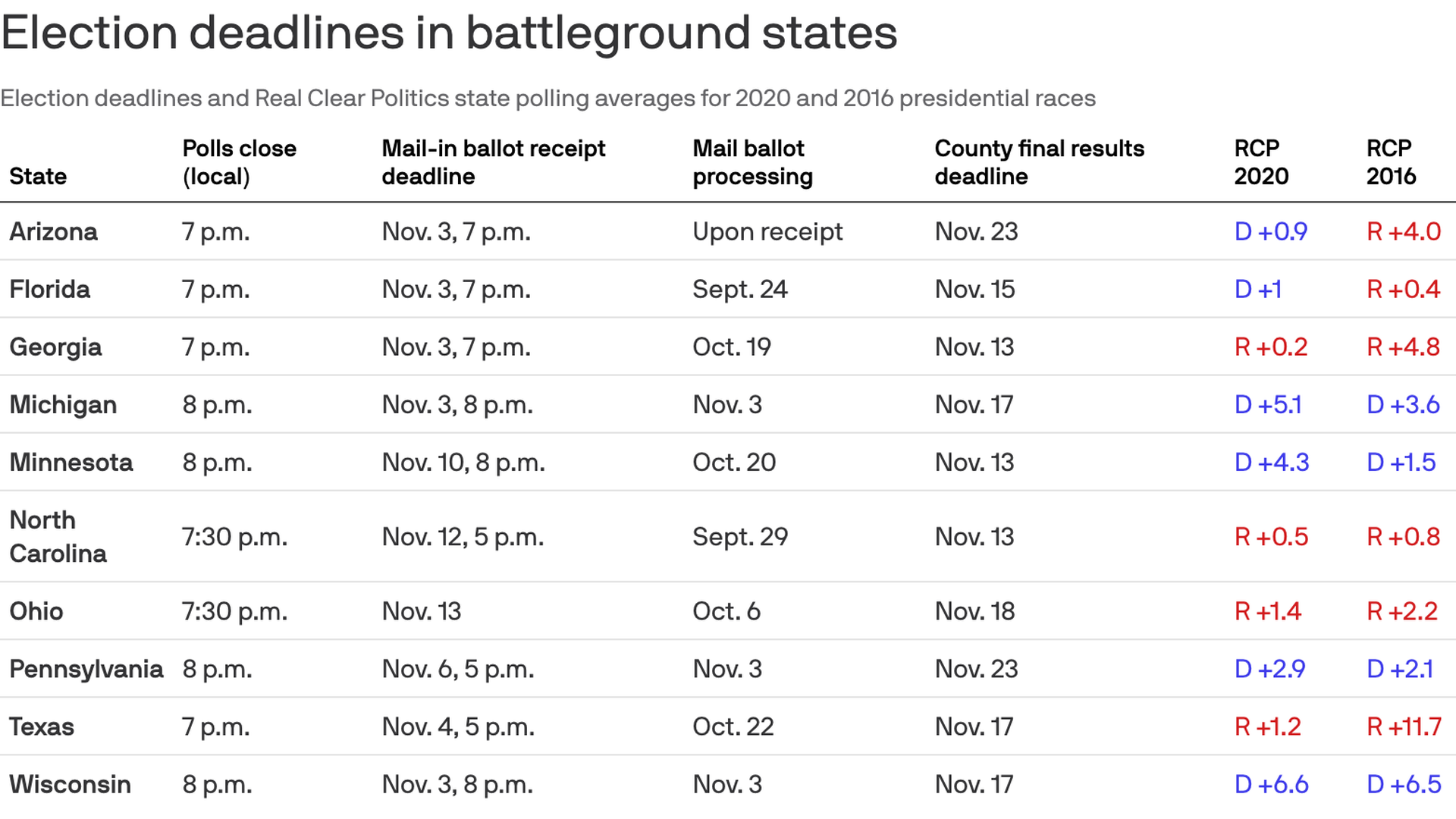 | | | Data: Secretaries of State Offices and State Election Boards, Real Clear Politics; Chart: Sara Wise and Andrew Witherspoon/Axios | | | | How to watch the battleground states this week (Axios) - We're not going to know the next president until we have a clear idea of who's winning the battleground states — and some of those results will be delayed as states sort through an avalanche of mail-in ballots. If it's close, Americans could face a days-long waiting game to find out who the president-elect will be.
When the virus came for the American Dream (New York Times) - The Times' Matthew Shaer tells a poignant story about the pandemic's economic damage from Buford Highway, a place in the suburbs of Atlanta where immigrant businesses have thrived — until this year.
The epic legal fight between U.S. companies and insurers (Bloomberg) - Thousands of firms are filing business interruption claims with insurers, but they're caught up in intensifying legal battles with insurance companies that have mostly refused to pay. Many businesses say that without that money, they'll be forced to shutter.
Working from the pub (Wall Street Journal) - London's office workers are finding refuge inside local pubs, which have opened their doors to people looking for a quiet place to work outside of their homes. For the pubs, it's a new way to bring in revenue during a tumultuous time.
|     | | | | | | 6. 1 scary thing: Surveilled on Zoom | 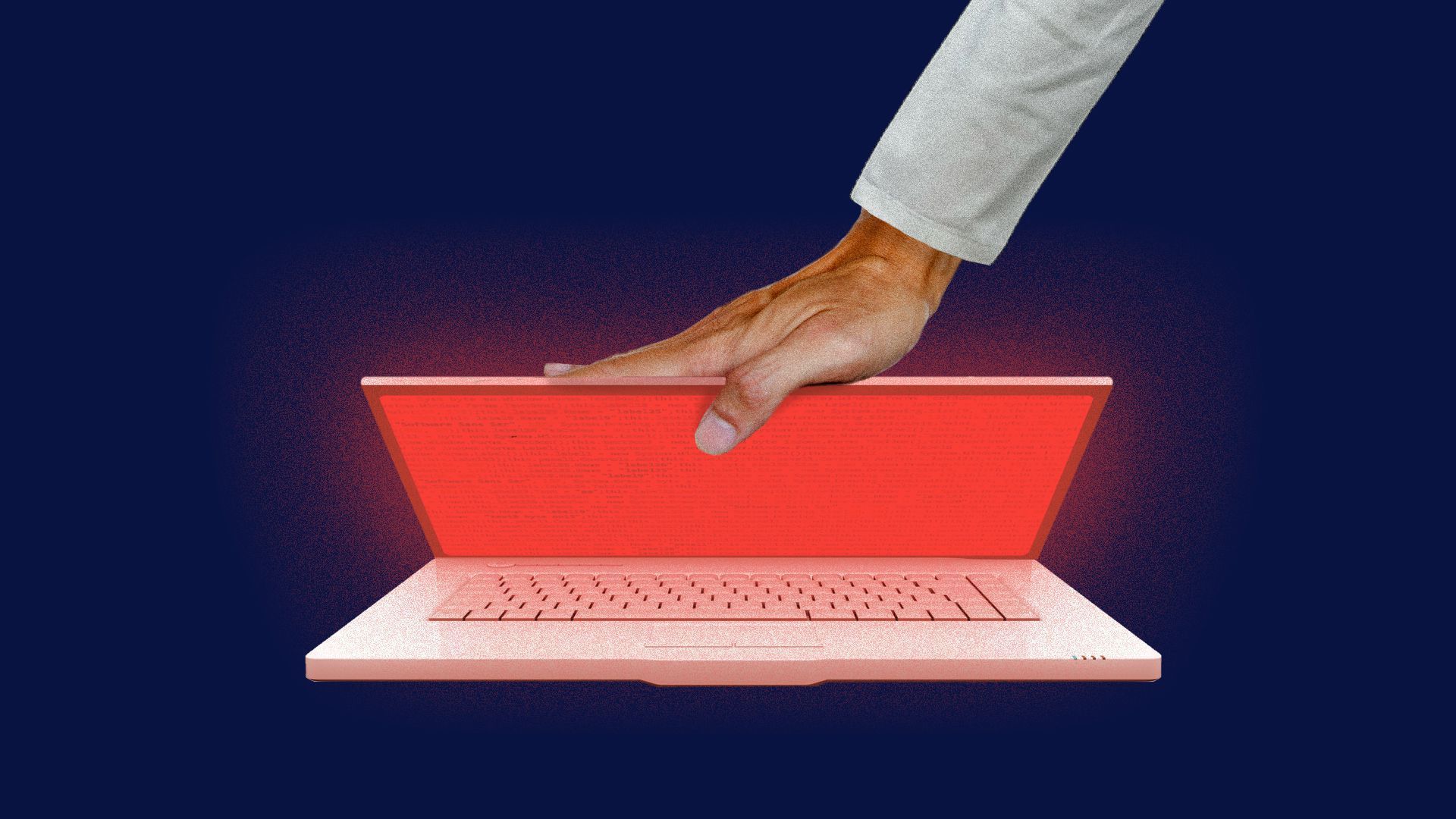 | | | Illustration: Sarah Grillo/Axios | | | | Here's a new thing to worry about on Zoom. - Hackers could analyze the movements of your shoulders to figure out what you're typing during a video call, according to a new study by researchers from the University of Texas at San Antonio and the University of Oklahoma.
Why it matters: Most of us multitask on those calls — and while we know we're on camera, we think of our actual screens as safe zones. - "Now that we spend so much of our days on Zoom, I think we can all be adult enough to admit: We've all side-chatted, saying one thing to the camera, and another on the side," Fast Company's Mark Wilson writes.
- "Maybe it was a joke over Gchat at a coworker's expense. Maybe it was just multitasking some emails. Maybe it was entering a password into another site."
- "It's a relatively innocuous behavior, but it could come back to bite us."
Worth noting: The researchers were able to translate shoulder movements into typed words without even using artificial intelligence or machine learning techniques. They just studied pixel shifts around people's shoulders. |     | | | | | | A message from Lumina Foundation | | The must-read book paving the way for more meaningful work | | | 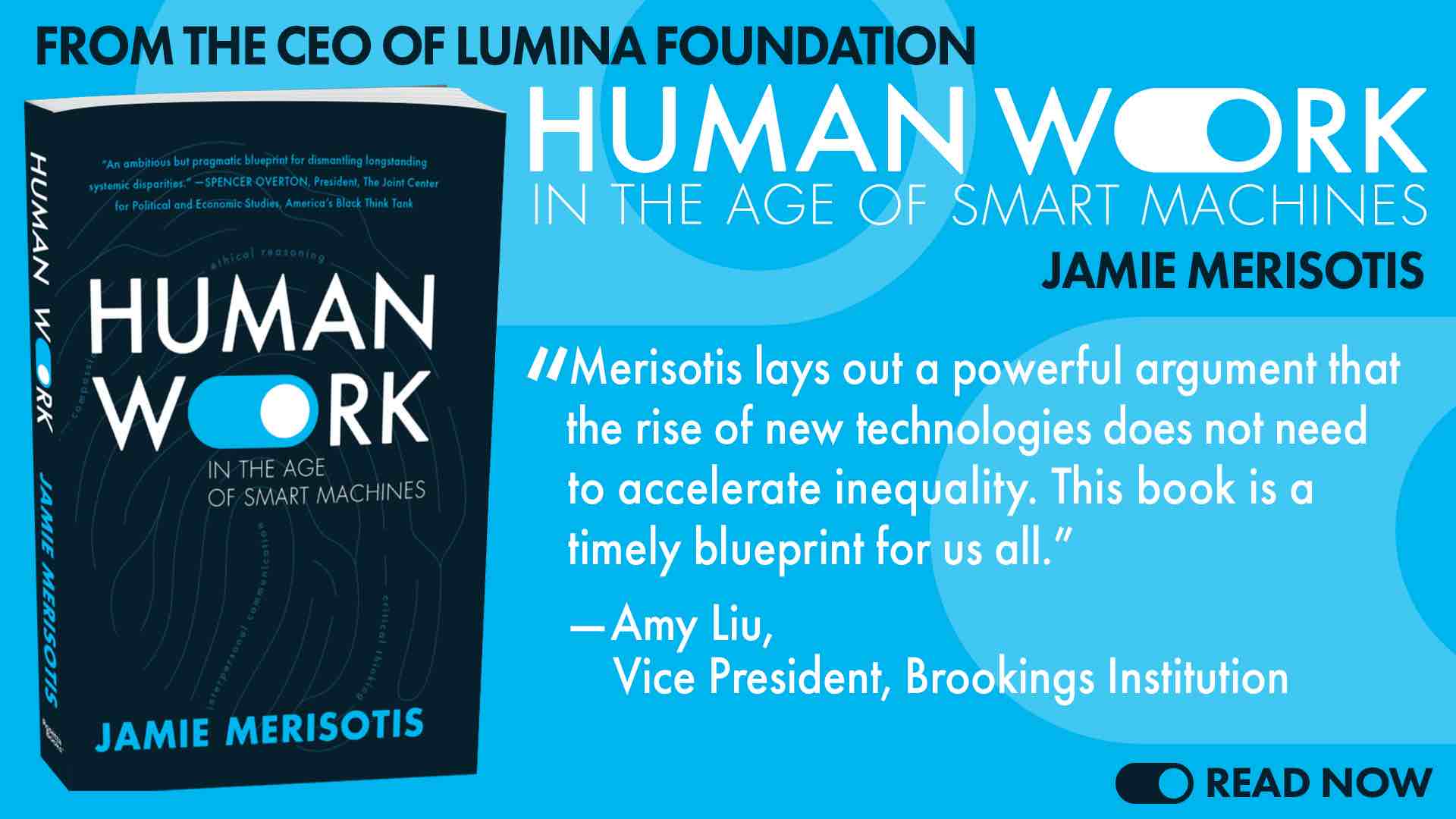 | | | | Praise for Lumina Foundation president and CEO Jamie Merisotis' Human Work in the Age of Machines: "…Required reading for anyone interested in productive and disruptive policy change for cultivating a new generation of American talent," says Darren Walker, Ford Foundation. Get the book. | | | | Thanks for reading! | | | | Axios thanks our partners for supporting our newsletters.
Sponsorship has no influence on editorial content. Axios, 3100 Clarendon Blvd, Suite 1300, Arlington VA 22201 | | | You received this email because you signed up for newsletters from Axios.
Change your preferences or unsubscribe here. | | | Was this email forwarded to you?
Sign up now to get Axios in your inbox. | | | | Follow Axios on social media:    | | | | | |








No comments:
Post a Comment